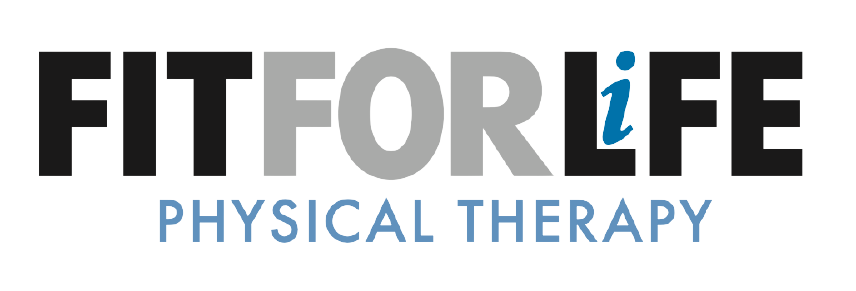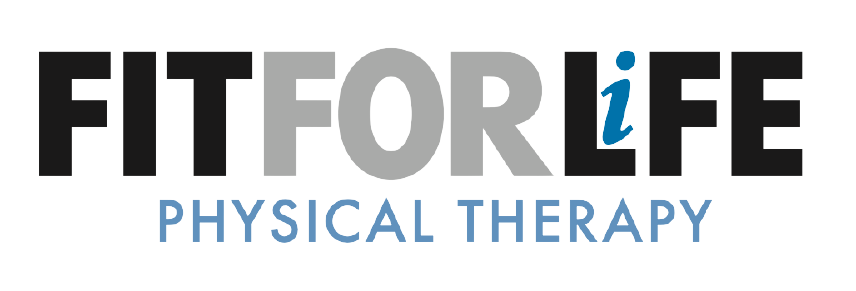Nutrition 101: Building a Strong Foundation
Protein, Carbohydrates, and Fat
Sports Dietitian, Fit For Life Physical Therapy
Before any athlete can worry about fueling for an event or race, the building blocks of a well- fueled body must be in place! The three nutrients that build this framework are our macronutrients: protein, carbohydrates, and fat. Each nutrient plays a role in our overall health and understanding how much we need of each and where to find them sets up each athlete for success throughout the season.
Throughout the article, you will see the words “satisfied” or “satisfaction” used when talking about a particular macronutrient. What does that really mean when it comes to food? In general, a nutrient, or part of a nutrient that leaves us feeling satisfied may impact one or more of the following: the rate of and release of appetite regulating hormones, the rate of gastric emptying (think: if something leaves your stomach at a slower rate, you will feel fuller for longer), or the detection of stomach stretching which stimulates receptors in the stomach that trigger appetite reducing parts of the brain. In general, a food that leaves us satisfied can keep us from feeling hungry for a longer period than other foods.
Protein
What does it do?
Protein is considered the “building blocks” of muscle in the body. Protein also plays a role in satisfaction and muscle repair. In some instances, protein in our muscles will be broken down and turned into glucose, or sugar to be used in the body to produce energy. Endurance athletes need both protein and carbohydrates to repair their bodies after exercising.
Types?
· Animal protein (chicken, fish, beef, shellfish, pork, dairy, eggs)
· Non-animal protein (soy, beans, nuts, tofu, tempeh, quinoa)
Examples?
Chicken, steak, eggs, fish, pork, shellfish, beans, tofu, tempeh, soy products, Greek yogurt, nuts, whey, protein powders
How much?
Try to spread protein throughout the day and consume a protein rich snack after a workout, walk, or run. Protein intake should be lower in a snack or meal that proceeds a hard practice or game. Aim to get about 20 grams of protein in per meal.
For growing athletes, protein requirements are 0.8-1.7gm/kg of bodyweight (BW) per day, or 0.4-0.8 gm/lb.
*To determine your weight in kilograms, take you weight in pounds (lbs.) and divide by 2.2!
**This will differ immensely based on age, sex, health status, and overall goals. Work with a sports Registered Dietitian to determine an appropriate range for you!
Carbohydrates
What do they do?
Carbohydrates are our body and brains main source of energy! Without carbohydrates, we would not be able to function well! Carbohydrates, specifically fiber, aid in digestive system regularity and allow us to feel satisfied after a meal. As athletes, we need carbohydrates to give us energy to do work, and as the intensity increases, our usage of stored carbohydrates increases. In fact, at 75% of our maximum workload, glycogen, the storage form of carbohydrates, contributes about 60% of the energy burned. If carbohydrates are lacking in our diet, our body will pull from the muscle to break protein down into amino acids that can be converted to glucose, which gives us that crucial energy. If this happens, we will be “tearing” our muscles apart that we work so hard to build. Overall, the factors that contribute to the body’s usage of carbohydrates during exercise include intensity, duration, the training state of the athlete, stress on the body such as heat and altitude, and metabolism.
Types?
· Simple carbohydrates: “quick" energy, leave stomach quickly (juice, candy, Gatorade, bread, dried fruit, fruit), typically more processed (processed does not mean bad!). Prioritize these right before a workout or practice!
· Complex carbohydrates: “slow releasing” energy, keep us satisfied, slowly leaves the stomach, includes fiber (whole grain bread, pasta, beans, nuts, oats). Save these until after a hard run, practice, or until after a game.
Examples?
Simple Carbohydrates: fruit juice, candy, white bread, dried fruit, cake, cookies, fruit, milk, honey, sugary cereal, white rice, energy gels/chews, sport drinks
Complex Carbohydrates: whole wheat products, starchy vegetables, quinoa, oats, nuts, beans, fruit, the skins of fruit and vegetables, whole grain pasta, bran cereal, farro
How much?
For a normal individual: carbohydrates should make up 45-65% of your daily calorie intake.
For athletes: 5-10g/kg of BW per day, or 2.3-5gm/lb. of BW per day depending on intensity of exercise (more hours or more intense exercise = more carbohydrates!)
Focus on increasing intake around runs or working out. Instead of focusing on a number, make sure each meal or snack has some type of carbohydrate!
THINK: Simple to start, complex to complete (simple carbs before our runs or races, complex carbs when the exercise is completed!)
In general, fiber recommendations are as followed: Females: 25gm; Males: 38gm
Note: some individuals need more fiber to feel “regular “or have normal bowel movements. Use this as a guide and increase fiber intake slowly!
Fat
What does it do?
Fat is an extremely important macronutrient and athletes, especially female athletes, should ensure they are consuming adequate amounts. Fat in the diet plays a role in satisfaction, hormone function, cell function, and is critical to help protect important organs in the body.
Types?
· Saturated: usually solid at room temperature (butter, coconut oil, whole milk)
· Unsaturated: liquid at room temperature (plant oil, avocados, seeds/nuts). Focus on unsaturated fat intake > saturated.
· Omega-3 fatty acids: combat inflammation, beneficial for heart health
Examples?
Chia seeds, whole-milk dairy products, coconut oil, avocado, nuts and seeds, olive oil, tuna, salmon, sardines (unsaturated)
Fried chicken, butter, lard, commercial cakes and sweets, meat with fatty pieces (saturated)
Consuming an Omega-3 supplement may be beneficial if you don’t consume many unsaturated fats regularly. Speak with a professional to see if this is right for you!
How much?
Fat intake should make up 20-35% of the diet.
Try to focus on consuming unsaturated forms of fat to make up most of your fat intake.
Registered & Licensed Dietitian Rebecca Youngs is an avid marathoner, loves to work out, and has specialized her practice in gastrointestinal health, as well as sports nutrition and fueling athletes of all levels. She is available for individual consultations at Fit For Life Physical Therapy or through zoom video conference.
Fit For Life Physical Therapy cares for people of all activity levels - to help prevent, recover from, or rehabilitate sports & orthopedic injuries. We are proud to move people every day.
Please visit our website https://www.fitforlifephysicaltherapy.com/, email us at info@fitforlifephysicaltherapy.com, or call or text us at any of the phone numbers for our three convenient locations inside Fleet Feet/FrontRunner stores:
Polaris: 1270 East Powell Road Lewis Center, Ohio 43035 ~ 614-981-2065
Upper Arlington: 1344 West Lane Avenue, Columbus, Ohio 43221 ~ 614-981-1979
New Albany: 5792 North Hamilton Road, Columbus, Ohio 43230 ~ 614-581-7441

